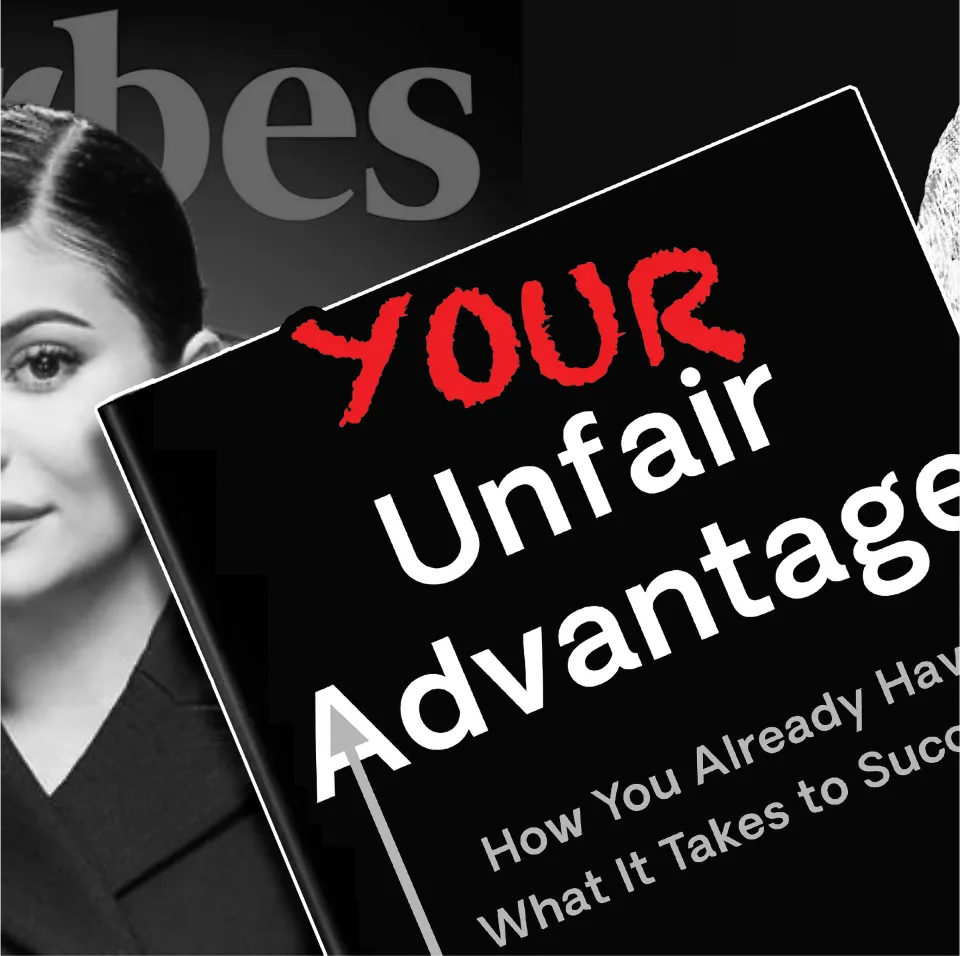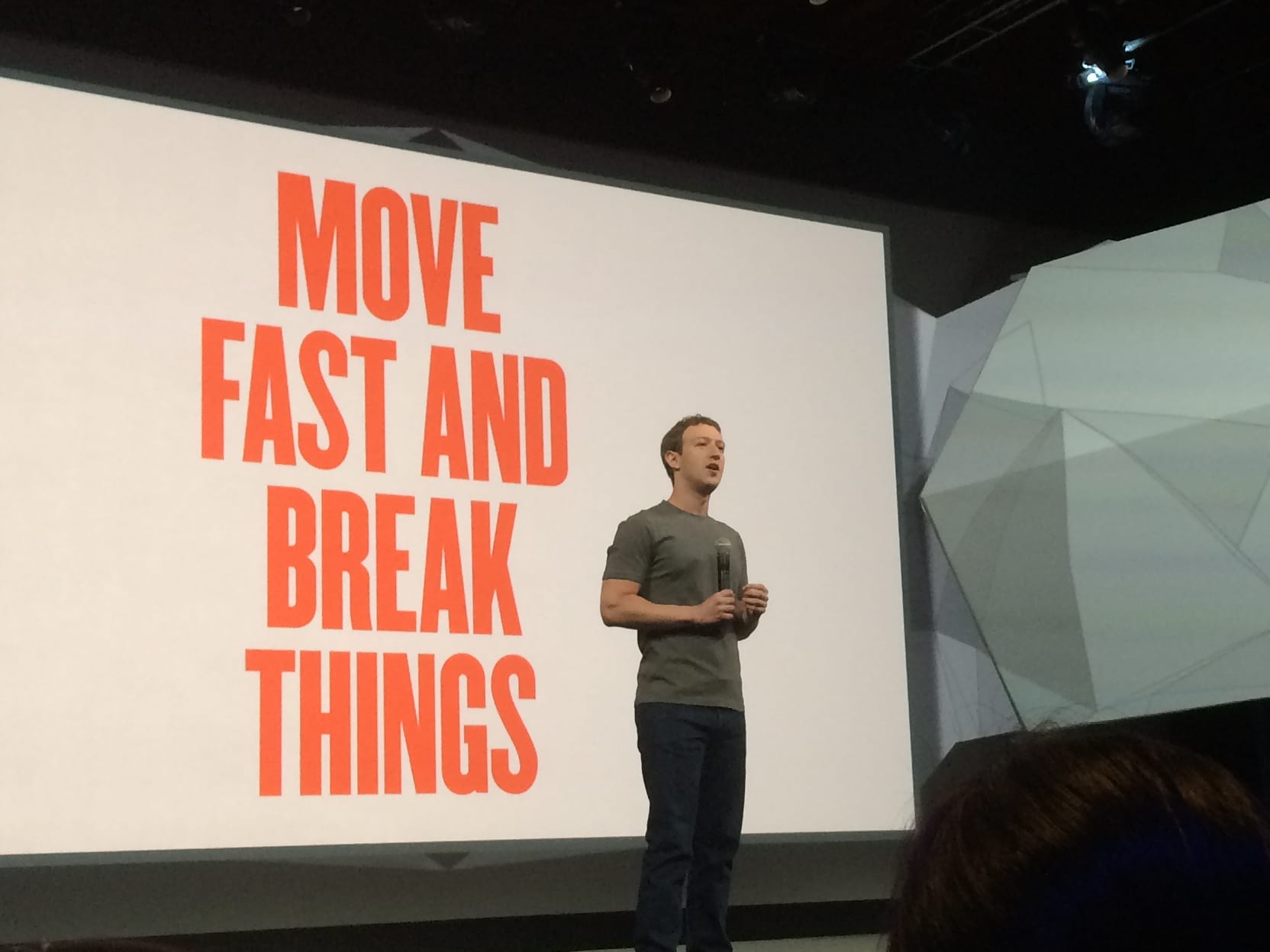WHAT MAKES PEOPLE SUCCESSFUL – secret blueprint

Have you ever wondered how some people get ahead?
How someone like Kylie Jenner gets titled youngest self-made billionaire, when 99% of global adults have less than 1 million Dollars?
We're often told that success is directly correlated with hustle or hard work, that we won't get anywhere without putting in 100-hour work weeks.
But what if that is NOT the case?
What if, those who succeed simply have an unfair advantage?
And what if, I told you, that we all have our unique set of unfair advantages, our shortcuts to success, and if played right, YOU can have great success, as well.
At the end of this blog post you will know how the MILES Framework can help you with exactly that, PLUS which kind of mindset you need to leverage YOUR unfair advantages to live YOUR best life.
Meritocracy vs Unfair Advantages
Let's take a closer look at the 2021 business book of the year: "The Unfair Advantage - How You Already Have What It Takes To Succeed," written by two entrepreneurs and investors, Ash Ali and Hasan Kubba, in which they define Meritocracy as a system in which those who deserve to get rich, eventually get rich.
Cheers for letting me know, you might think, in times when inequality is at an all-time high, and thanks to the Power Law won't get better, ever. And if we look around it seems true: it is those who are already successful who are most likely to be given the best opportunities that lead to further success. It’s the ultra rich who get the tax breaks. It’s the most famous singers who get the Grammies.
Success often results from accumulative advantage, which Malcolm Gladwell describes in "Outliers: The Story of Success", as the "Matthew Effect" where small initial advantages accumulate over time, leading to significant disparities in success and achievement. Warren Buffett calls it the "ovarian lottery" – the good fortune of being born with the right talents, to the right parents, in the right place, at the right time.
And from my experience in corporate and startup world I can confirm that success isn't simply awarded to the hardest workers – or else I would have seen other people being promoted and receiving a biggest bonus.
According to the authors, success is awarded to those who develop and use their unfair advantages. And I pretty much agree.
And it's true when we're looking at successful people, like Kylie Jenner, they generally didn't get there with hard work alone.
There was normally other stuff that played a role as well, like: certain circumstances, timing, assets, privilege, family, luck that sort of thing. So one could say that unfair advantages are to an individual what competitive advantages are to a business, according to Ash and Hasan.
And as you know, life isn't a level playing field. Life isn't fair. Never was, never will be. Plus, what one person considers fair, someone else might not – based on individual experience and motives... and who is really unbiased enough to judge or change that?
Everybody has different strengths and opportunities. Some people have access to certain networks, finance, or they are just in the right location at the right time. All that provides a competitive edge, something that someone else can't easily replicate.
And one of the main ideas of the book and the reason why the subtitle is "How You Already Have What It Takes to Succeed", is, that these unfair advantages aren't just for people who are already rich and famous but – everyone has them! We all have unfair advantages in our own ways. And by leveraging your unfair advantages, you’re working smarter not harder.
So, how do you find out, where your unfair advantages lie?
Enters the MILES Framework, which starts with:
Money
M for money and let's take Mark Zuckerberg as an example.

With upper middle class parents, Mark was gifted early exposure to computer programming, that laid the groundwork for his future achievements. His education at Harvard further provided him with access to a network of influential future tech leaders and entrepreneurs. This combined with his visionary and driven work on Facebook, which some of us know from the movie "The Social Network", propelled him to billionaire status by his early 20s.
Clearly, he had to put in the work and follow the early Facebook motto, "Move fast and break things", but it shows how money can be an unfair advantage.
Intelligence + Insights
The I stands for intelligence and insights. Let's take the Collison brothers, for example, who co-founded Stripe, a service each of us probably uses frequently when paying online and which became a multi-billion dollar company before either of them had turned 22.
Patrick Collison kind of invented his own computer programming language when he was 16, and he left school a year early to enrol at MIT.
His brother John Collison finished with the highest ever score on his leaving certificate, some equivalent of A-levels, and was accepted into Harvard before he'd even done his final exams.
And no doubt, hard work, grit and drive went into building Stripe, but this level of intelligence and insights: certainly an unfair advantage.
Location + Luck
Next L, for location and luck.
So Ray Kroc, the guy who first bought and then popularised McDonalds and who you might know from the must-see movie "The Founder" once said, the two most important requirements for major success are, first, being in the right place at the right time, and secondly, doing something about it.
Of course, location is important, businesses cluster – think Power Law again as they do in Silicon Valley, for example, and the right location can be key to unlocking opportunities and making connections. But with all the limitations of the physical space, like high rents – the abundant opportunities in the digital realm and also people wanting to work from home, let's see how long location stays so important over time.
For some it might be interesting to hear, that often we can create our own luck by exposing ourselves to more things. Apply the Compound Effect – take more action, do more things, meet more people, go to more events, blog about your ideas, produce things and publish them, get feedback and put more value out into the world.
And the idea is that as we expose ourselves to more of these opportunities, the more we increase the surface area for serendipity, the more we allow luck to manifest itself, the higher the probability to eventually get lucky.
I for once, met my wife several years ago at a blockchain conference, when many of my former Banking colleagues strongly advised me against going. I am glad I didn't listen to them. 😜
Just do what you think is the right thing to do, that's how you find your way, your partner for life ... and everything else becomes secondary.
Education + Expertise
Now, the E stands for education and expertise.
Let's face it, most people believe that having some sort of credentials from a fancy university is an unfair advantage.
Like, let's say I wanted to start a YouTube Channel for people fed up with obsolete working conditions, lack of leadership, toxic company politics and rather want to embrace the Digital Renaissance, take advantage of AI and start building your own business.
I took entrepreneurial programs such as, Stanford's "Idea to Market" and Oxford's "Fintech Programme," it certainly was resourceful, shaped my thinking and helps doing this kind of stuff.
But to be honest, for me and most of my friends, the majority of our knowledge comes from books, blogs and videos you can find on the internet these days. Harsh truth is, that nowadays things move so fast, and many institutions still have industrial-age approaches, outdated staff and simply can't keep up with the speed of the Exponential Age.
And when it comes to signaling, it seems like people care more and more about what you've been doing, what you are working on and what skills you can bring to the table.
Al and the internet have unbundled knowledge and functions from universities, diminishing the need for traditional education and credentials, while giving room for cheaper, accessible and more efficient ideas.
If you want to go deeper on this, I can recommend watching the "Marc & Ben Show" where the cofounders of Andreessen Horowitz (a16z) talk about the crisis in higher education and how to fix it for our children. And if you were wondering, yeah the one on the right is indeed the author of this awesome book "The Hard Thing About Hard Things: Building a Business When There Are No Easy Answers," which I really loved reading.
Your value, you know, the unfair advantage doesn't come from specific qualification alone, but more often these days, it's coming from your expertise.
And that is something that you can build in your own time, taking programs, being part of accountability groups, setting targets and executing them.
And it's not just something that stops after we leave school. With the speed things are developing or rather accelerating – remember, we are in the early innings of an exponential curve – there's no other way than lifelong learning ... or getting your Brain-Computer Interface (BCI) from companies like Neuralink.

But until we all can learn like Neo ("I know KungFu.") in The Matrix, we can enjoy reading books, participating in online classes, watching videos and stuff. In fact, you can check out my video "The 4 Magical Apps That Changed My Life" in which I show you my CCC System to capture all the consumed information for your future self and create something really useful with it.
Status
And finally, S for status, which is your perceived ability to add value.
Elon Musk's status in the world right now, is so high that he could probably start any business and become successful with it. Even outside of X everyone would hear about it, regardless how ridiculous the name.
In the book "The Unfair Advantage" Ash and Hasan, fortunately, also talk about how we can develop inner status, so things like confidence and self-esteem and I fully agree that it's important to develop a kind of mindset to just do the things you wanna do, like going to a Blockchain Conference.
Your Unfair Advantage
MILES: Money, Intelligence and Insight, Location and Luck, Education and Expertise, and Status, and if you have a combination of these – that’s when you have an unfair advantage.
And this stuff isn't just for people wanting to start a business or to be entrepreneurs. In fact, for any career path, you want to know, what you're naturally good at so you can save time, since it's your path of least resistance, right?
Everybody has unfair advantages. And what might seem like a disadvantage at first, might be turned into an advantage after all. So for example, the author states that he had hardly any money when starting off, but compared to his well-off peers who just were buying Facebook Ads, he had to develop a growth mindset to become more creative in getting traction early on.
You Need the Right Mindsets
You might have heard people talking about growth and fixed mindsets or you may have even read the book "Mindset - Changing The Way You think To Fulfil Your Potential" by Carol Dweck from Stanford. According to her, people with a fixed mindset believe they are born naturally gifted at doing some things, but incapable of others. This black-and-white way of thinking often obstructs their development. So failure is a big disaster to a person with a fixed mindset.
Whereas the opposite is a growth mindset, that is when a person believes that all in life is fluid. Yes, you can be bad at something, but it is only because you have not taken the time to get better at it, YET! Basically, since our abilities are not fixed, we can grow better, because everything is just a learning experience. And that's why you can make videos about stuff you don't have a PhD in, because it's all a work in progress. It's all part of continuously improving. It's all part of a growth mindset.
Look around, I am sure you will easily recognise people of either kind.
In fairness, one of the issues with the growth mindset is that you can take it a bit too far towards overconfidence. So taking this flaw into account, Ash and Hasan talk about an evolution of the growth mindset which they call the
Reality Growth Mindset
This mindset encourages to strike a balance between self-awareness and self-belief. It's about having your feet rooted on the ground with your head in the clouds, so your unfair advantages can shine.
It's only healthy and reasonable NOT to kill yourself by trying to be Kylie or Elon. Since not everybody's born with the same opportunities or talents.
So don't feel depressed fixating on privileges and outer status, which you probably don't have – but focus on your unique advantages instead.
You might say the fixed mindset is about believing in luck and the growth mindset is about believing in hard work, whereas the reality growth mindset leads to sustainable success empowered by your unfair advantages.
It's about knowing the realities and leveraging your unfair advantages to live your best life.
